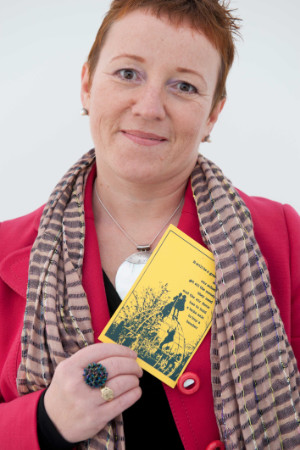
Feminist Peace and Security Studies: The Gendered Continuum of Peace-War
Course Description
This course focuses on the adjacent fields of Feminist Peace Studies and Feminist Security Studies, which explore issues of peace/ war/ conflict/ security from a variety of feminist perspectives. Scholars working in these overlapping, as well as complementary, fields ask questions about the gendered nature of (conceptions of) peace and war, both in terms of how gender norms shape peace and war as well as how these, in turn, reshape gender norms. The feminist scholars also consider gender relations as causal in militarization and war, making connections across the continuum of violence that spans peace-wartime.
To introduce student to insights from this feminist literature, the course focuses on four main areas: How have feminists challenged the meanings of key concepts such as peace and security? What happens when we study armed conflict while also paying attention to femininities and masculinities? What can we find out when we ask feminist questions about soldiers and the militaries? How has feminist activism, exemplified in the adoption of the so-called Women, Peace & Security agenda at the United Nations and of the International Treaty on the Prohibition of Nuclear Weapons, affected global security environments? The recent Russian invasion of Ukraine makes a gender analysis of the efficacy of this Treaty particularly urgent and salient, and the course will devote some time to this as well as other feminist interrogations of the current conflict. The course illustrates the theoretical discussion through practical examples taken from feminist research on violent conflicts, as well as their aftermaths, around the world (from Afghanistan to Liberia, from Guatemala to Israel, from Rwanda to India). In this course, students will also learn the tools to carry out their own analyses of peace and war from a feminist perspective.

Catia C. Confortini is Associate Professor at the Peace and Justice Studies Program at Wellesley College in the US. She received her Ph.D. in International Relations from the University of Southern California and her MA Degree in International Peace Studies at the Joan B. Kroc Institute for International Peace Studies at the University of Notre Dame.
Her research and publications explore the contributions of women's peace activism to peace studies as an academic field and as a practice, as well as feminist theorizing of peace and violence. More recently, she has explored the relationship between feminist peace research – with its normative commitment to a world without (gendered) violence – and global health. This has resulted in the co-edited book (with Tiina Vaittinen) entitled Gender, Global Health, and Violence: Feminist Perspectives on Peace and Disease (RLI, 2020). Her work has been published in Health Policy and Planning, The International Feminist Journal of Politics, Peace and Change, Journal of International Political Theory, and International Political Sociology. She is the author of Intelligent Compassion: Feminist Critical Methodology in the Women’s International League for Peace and Freedom (OUP, 2012); co-editor (with Tarja Väyrynen, Élise Féron, and Swati Parashar) of The Handbook of Feminist Peace Research (Routledge 2021); and co-editor (with Tiina Vaittinen and Shweta Singh) of the book series Feminist Studies on Peace, Justice, and Violence (Edinburgh University Press).

